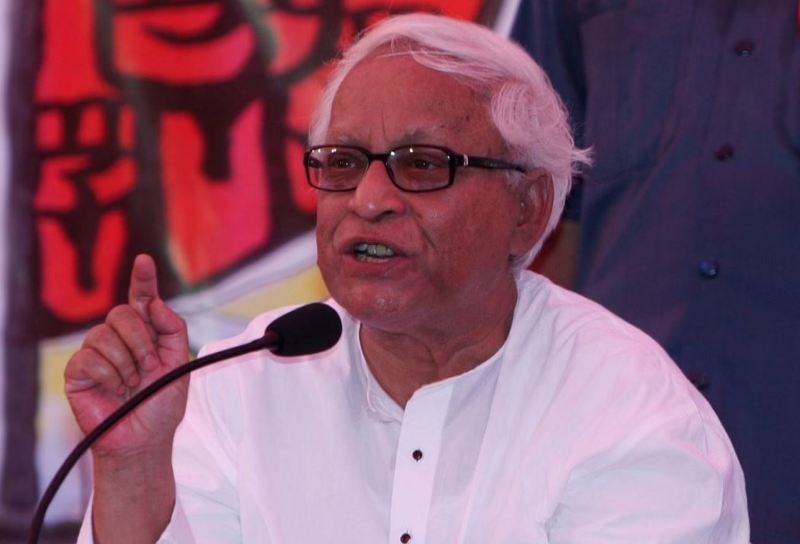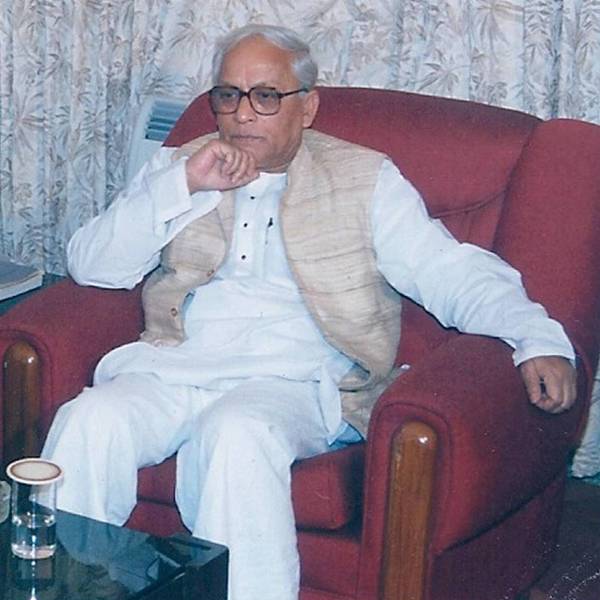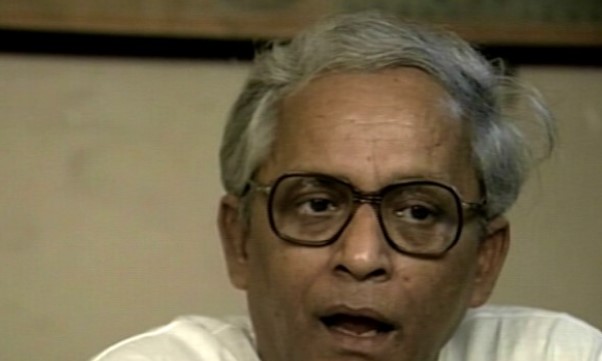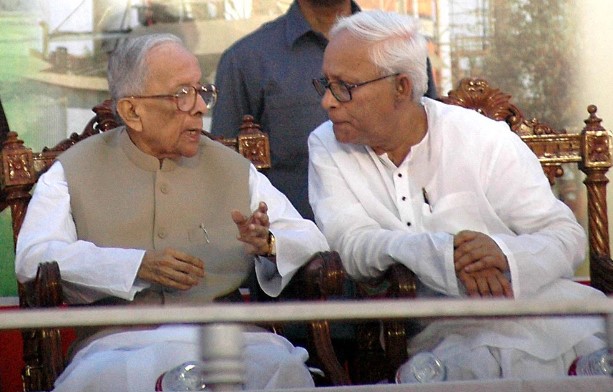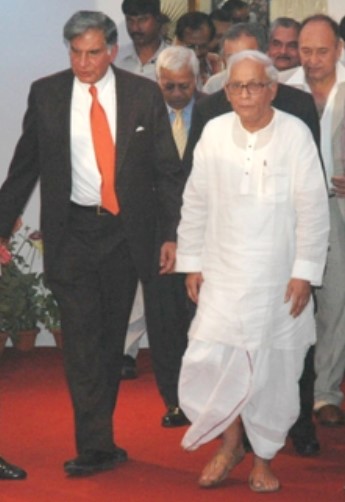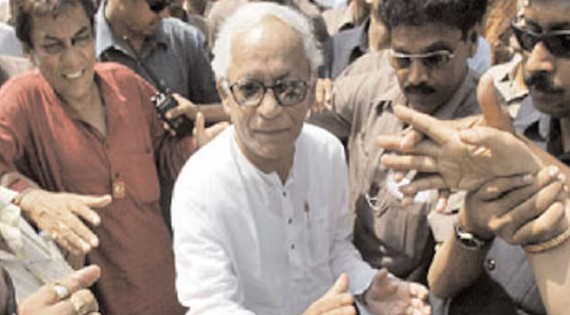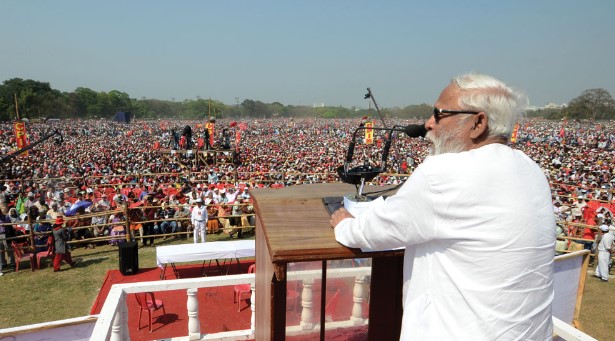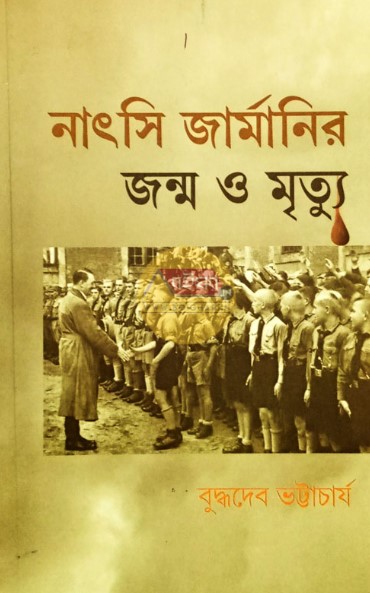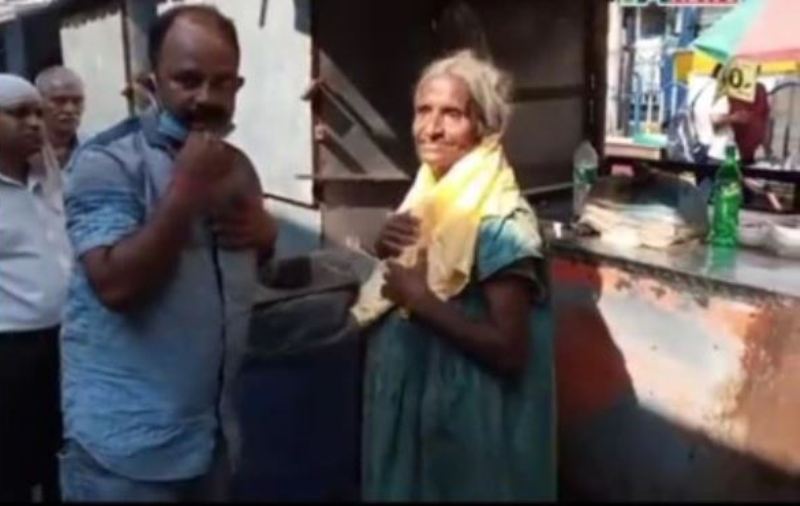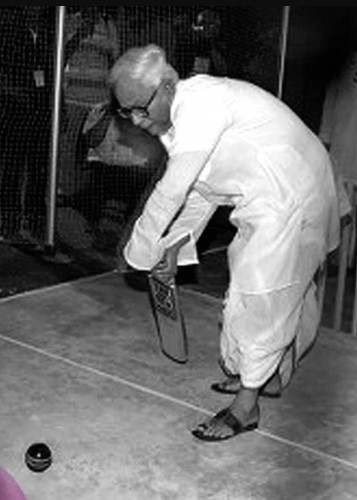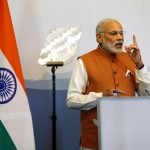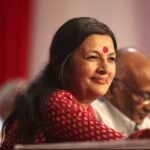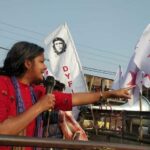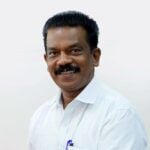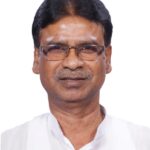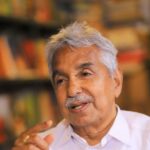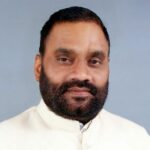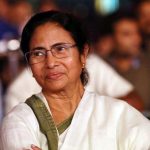Buddhadeb Bhattacharjee Age, Death, Wife, Children, Family, Biography
| Bio/Wiki | |
|---|---|
| Other name | Buddhadeb Bhattacharya |
| Profession(s) | • Politician • Littérateur • Columnist • Poet • Orator |
| Physical Stats & More | |
| Eye Colour | Black |
| Hair Colour | Grey |
| Politics | |
| Political Party | Communist Party of India (Marxist)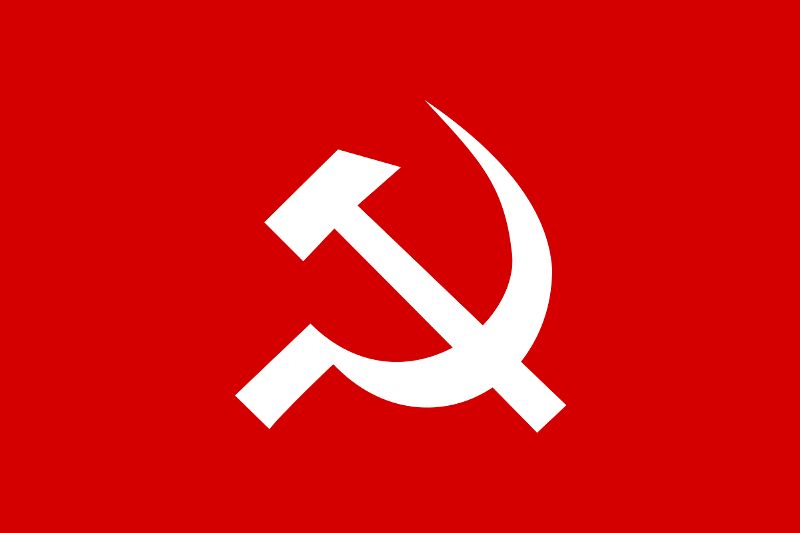 |
| Political Journey | • 1977–1982: Member of West Bengal Legislative Assembly from Cossipur constituency • 1987–2011: Member of West Bengal Legislative Assembly from Jadavpur constituency • 2000–2001: Served as the 2nd Deputy Chief Minister of West Bengal • 2000–2011: Served as the 8th Chief Minister of West Bengal • 2000–2011: Served as the Minister of Land and Land Revenue in the Government of West Bengal • 2002–2015: Served as the Member of Politburo in Communist Party of India (Marxist) |
| Personal Life | |
| Date of Birth | 1 March 1944 (Wednesday) |
| Birthplace | Calcutta, Bengal Presidency, British India |
| Date of Death | 8 August 2024 |
| Place of Death | Kolkata, West Bengal, India |
| Age (at the time of death) | 80 Years |
| Death Cause | Age related illness |
| Zodiac sign | Pisces |
| Nationality | Indian |
| Hometown | Calcutta, Bengal Presidency, British India |
| Religious Views | In one of his interviews, in 1997, he stated that he was a communist and an atheist. He said, I am a Communist and an atheist. But if I am to visit a temple, I would take off my shoes in deference to others' sentiments." |
| School | Sailendra Sircar Vidyalaya, Kolkata, West Bengal |
| College/University | Presidency College, Kolkata, West Bengal |
| Educational Qualification | B. A. Honours in Bengali (1964) |
| Address | # 59-A, Palam Avenue, Government Quarters, Kolkata, West Bengal |
| Relationships & More | |
| Marital Status (at the time of death) | Married |
| Family | |
| Wife | Meera Bhattacharya (social activist)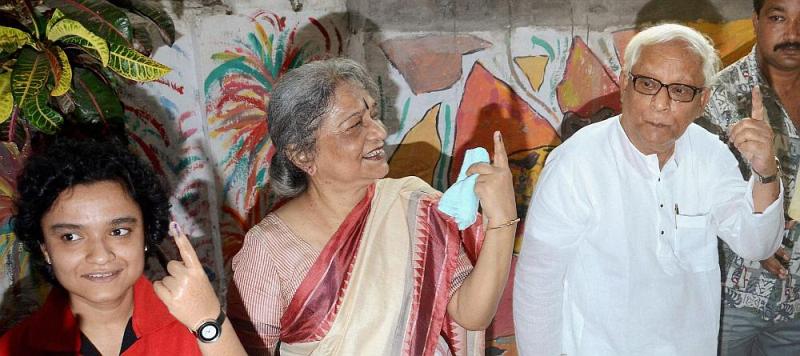 |
| Children | Daughter- Suchetana Bhattacharjee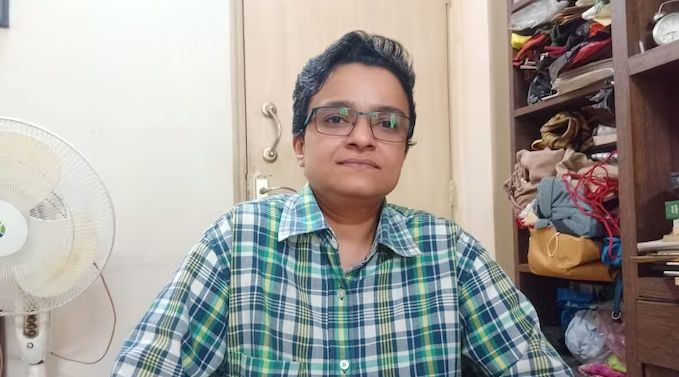 Note: In June 2023, she decided to undergo a sex-change operation and become 'Suchetan' after she identified herself as a man. She said, “My parental identity or family identity is not a big deal. I am doing this as part of my LGBTQ movement. I want to stop the social harassment I face every day as a trans-man." [1]India Today |
| Parents | Father- Nepal Chandru Bhattacharjee (businessman) |
| Other Relatives | Grandfather- Krishnachandra Smrititirtha (a Sanskrit scholar, priest, writer) Uncle- Sukanta Bhattacharya (Bengali Poet) 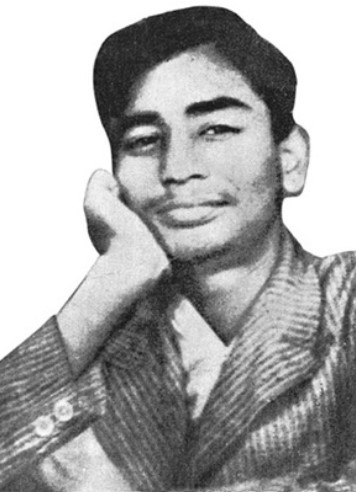 |
| Money Factor | |
| Assets/Properties | Movable Assets • Cash: Rs. 3,550 • Deposits in Banks: Rs. 6,62,828 • Bonds, Debentures and Shares: Rs. 10,900 • NSS, Postal Savings: Rs. 2,65,000 • Jewellery: Rs. 6,00,116 [2]My Neta |
| Net Worth (approx.) (as of 2006) [3]My Neta | Rs. 15,42,394 |
Some Lesser Known Facts About Buddhadeb Bhattacharjee
- His grandfather was the writer of a religious book called Purohit Darpan, which became popular among Bengali Hindu priests in West Bengal.
- His father, Nepal Chandru, did not become a priest and handled the family business, Saraswat Library, which sold Hindu religious material.
- After completing his formal education, Buddhadeb Bhattacharjee worked as a teacher for some time at Dum Dum Adarsh Vidya Mandir, a higher secondary school in Kolkata.
- He became a member of CPI(M) in 1966. He participated in the food movement and supported Vietnam in 1968.
- In 1968, he became the state secretary of the Democratic Youth Federation, the youth wing of CPI(M). He served in the position till 1981.
- Pramod Dasgupta, a former politician, was his mentor in politics.
- Buddhadeb Bhattacharjee joined the state committee of CPI(M) in 1972. He joined the state secretariat in 1982.
- He served as the MLA of Kashipur-Belgachhia constituency in West Bengal from 1977 to 1982. During this time, he also worked as the Minister of Information and Public Relations.
- He contested the 1982 assembly election from the Cossipur constituency in West Bengal but lost by a small margin.
- In 1984, Buddhadeb Bhattacharjee became a permanent invitee to the central committee of CPI(M) and a full-time member in 1985.
- In 1987, he was appointed as the Minister of Information and Cultural Affairs. During the same time, he also handled the Urban Development and Municipal Affairs departments.
- He resigned in September 1993 due to differences with the state chief minister and issues of corruption.
- In 1996, Buddhadeb Bhattacharjee took control of the home and police departments due to the health issues of the Chief Minister of West Bengal, Jyoti Basu.
- In 1999, he became the Deputy Chief Minister of West Bengal.
- On 6 November 2000, he became the Chief Minister of West Bengal after Jyoti Basu stepped down.
- After becoming Chief Minister of West Bengal, Buddhadeb Bhattacharjee refused the bungalow granted to chief ministers.
- He operated from his two-room apartment at house number 59-A, Palam Avenue, Government Quarters in Calcutta.
- In 2002, he was elected to the politburo of CPI(M).
- Under his leadership, the CPI(M)-led Left Front won two elections, one in 2001 with 199 out of 294 assembly seats, and another in 2006 with 235 out of 294 seats.
- During his tenure as the Chief Minister of West Bengal, Buddhadeb Bhattacharjee initiated an industrialization movement to attract investment and create jobs in the state.
- This movement included some notable projects such as Tata Nano, the world’s cheapest car, in Singur, a large steel plant in Salboni, and a chemical hub at Nayachar. However, his industrial plans faced opposition.
- Tata Motors decided to leave West Bengal due to protests from the Trinamool Congress, Socialist Unity Centre of India, and Indian National Congress.
- In January 2006, the Supreme Court of India issued notices to him and other Left Front Government ministers regarding land allotments in Salt Lake City, Kolkata.
- In 2006, in a conversation with a media house, Buddhadeb Bhattacharjee stated that UPA was not a successful government as it failed to implement land reform in the country. [4]India Today He said,
No. They are a failure in agricultural sector. They could not implement land reform policy. That is very crucial.”
He further added in the same interview that he never followed Gandhian ideologies and was always a Marxist. He said,
I was never a Gandhian. I am still a Marxist. I believe capitalism cannot be the last chapter of human history.”
- In 2007, Bhattacharjee’s government faced criticism for its handling of protests in Nandigram. Opposition parties and some Left Front partners including CPI, RSP, and AIFB, criticized him.
- Jyoti Basu also criticized him for the police actions in Nandigram. On 15 March 2007, Jyoti Basu blamed him for not controlling the police.
- Buddhadeb Bhattacharjee then expressed regret for the police shootings but explained the actions due to a lack of law and order in Nandigram.
- He later declared that land in Nandigram would not be acquired and ordered the related notification to be cancelled.
- The CPI(M) supported him and developed plans to manage complaints within the Left Front.
- In the 2011 state assembly election, he contested from the Jadavpur constituency in West Bengal, and his opponent Manish Gupta of the Trinamool Congress won with a margin of 16,684 votes.
- Buddhadeb Bhattacharjee became the second West Bengal Chief Minister to lose an election in his constituency, after Prafulla Chandra Sen in 1967.
- Bhattacharjee resigned as Chief Minister of West Bengal on 13 May 2011. During his tenure, he faced several challenges after he proposed industrialization in the state.
- At the 21st party congress in Vishakhapatnam in 2015, he was relieved of his posts on the Politburo and Central Committee. He was convinced to stay on the state committee and state secretariat until 2018.
- In 2018, due to ongoing health issues, Buddhadeb Bhattacharjee stepped down from these positions but was later named a special invitee to the state committee.
- In 2019, he tried to attend a large rally at Brigade Parade ground in Kolkata but could not go on stage due to breathing difficulties and stayed in his car.
- Once, the Chairman of Wipro, Azim Premji, referred to him as the best Chief Minister in the country, and the then Finance Director of Infosys, T.V. Mohandas Pai, praised his dedication to the state.
- In 2020, Buddhadeb Bhattacharjee published a book titled “Nazi Germany r Jonmo O Mrityu” (The Rise and Fall of Nazi Germany).
- His other notable works included the book ‘Chena Phooler Gondho’ (The Fragrance Of The Known Flowers) and translations of Gabriel Garcia Marquez’s works into Bengali.
- In December 2021, he was admitted to Woodlands Hospital in Kolkata for respiratory problems.
- In September 2021, his sister-in-law, Ira Basu, was found living on the streets. Reportedly, she had a Ph.D. degree and a long career in education.
- In January 2022, the Government of India announced the names of the Padma Bhushan Awardees, including Buddhadeb Bhattacharjee. He declined to accept the award, stating that he had not been informed about it earlier. He said,
I don’t know anything about Padma Bhushan award, nobody told me about it. If I have been awarded the Padma Bhushan, I refused to accept it.”
An official from the home ministry later stated that his wife was informed about the award over the phone a day before the award distribution ceremony. The official said,
She was informed about the award. There was a full day between the call and the announcement but we didn’t hear anything.”
- After he turned down the award, the official Twitter handle of CPI(M) tweeted that the work of CPI(M) was for the people and not for awards.
Com. Buddhadeb Bhattacharya who was nominated for the Padma Bhushan award has declined to accept it. The CPI(M) policy has been consistent in declining such awards from the State. Our work is for the people not for awards. Com EMS who was earlier offered an award had declined it. pic.twitter.com/fTmkkzeABl
— CPI (M) (@cpimspeak) January 25, 2022
- He was an avid lover of music composed by Rabindranath Tagore.
- Buddhadeb Bhattacharjee enjoyed playing and watching cricket. He used to play cricket while attending sports events as the chief guest.
- In his leisure time, he liked travelling to China, the Soviet Union, Cuba, Vietnam, Great Britain, and France.
References/Sources:

